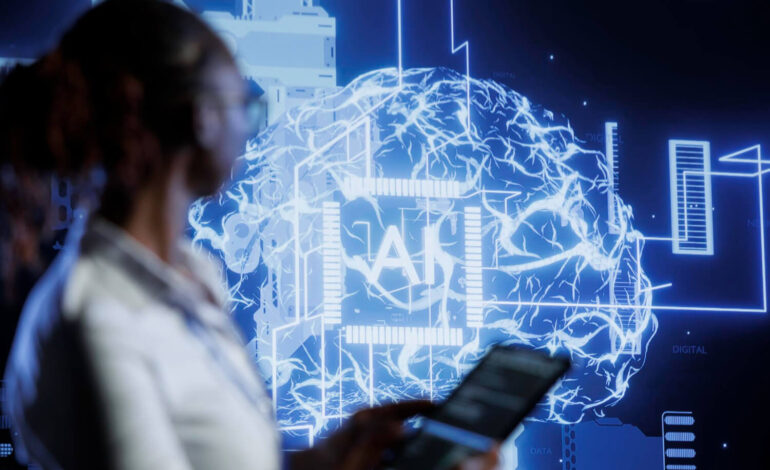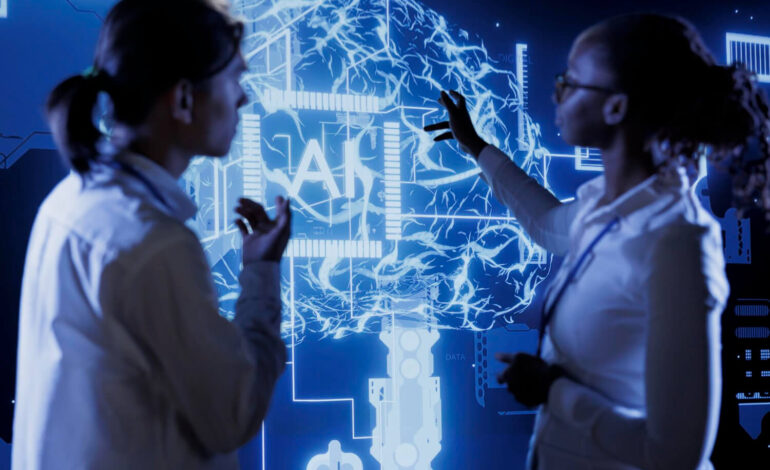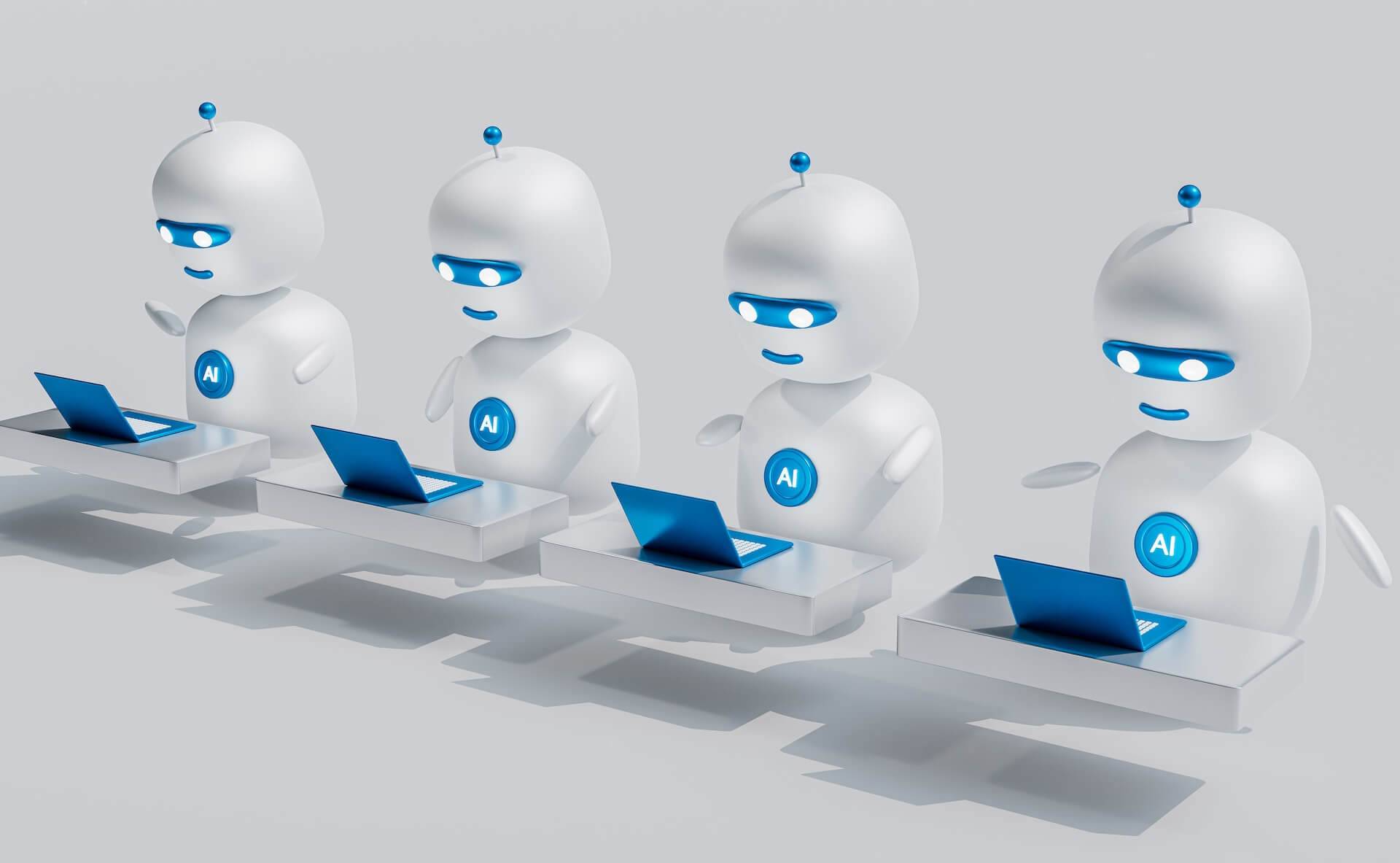Understanding Artificial Intelligence: The Future and Its Impact

Artificial Intelligence (AI) is one of the most transformative technologies of our time, reshaping industries, enhancing daily life, and challenging our understanding of intelligence itself. The significance of artificial intelligence continues to grow, making it a crucial topic for discussion. This article will explore the definition of artificial intelligence, its applications across various sectors, the ethical considerations surrounding its use, and the future implications of this technology. Throughout this article, we will use the keyword “artificial intelligence” 100 times to emphasize its importance.
What is Artificial Intelligence?
Artificial intelligence is defined as the capability of a digital machine to perform tasks that typically require human intelligence. These tasks include reasoning, learning from experience, understanding natural language, and recognizing patterns (Britannica). The concept of artificial intelligence has evolved significantly since its inception in the mid-20th century, with advancements in machine learning (ML), deep learning, and neural networks.
The Components of Artificial Intelligence
- Machine Learning (ML): A subset of artificial intelligence, machine learning enables systems to learn from data and improve their performance over time without being explicitly programmed. ML algorithms can analyze large datasets to identify patterns and make predictions.
- Natural Language Processing (NLP): This area of artificial intelligencefocuses on the interaction between computers and humans through natural language. NLP enables machines to understand, interpret, and respond to human language in a valuable way.
- Robotics: Robotics combines artificial intelligencewith physical machines to perform tasks autonomously. Robots equipped with AI can adapt to their environments and execute complex tasks in various settings.
Applications of Artificial Intelligence
The applications of artificial intelligence are vast and diverse, touching nearly every aspect of our lives. From healthcare to finance, astronomy to gaming, and transportation to entertainment, AI is reshaping industries and propelling us into a future where the possibilities seem limitless (Javatpoint).
1. Healthcare
In healthcare, artificial intelligence is revolutionizing patient care through predictive analytics and diagnostic tools. AI algorithms can analyze medical data to assist healthcare professionals in making faster and more accurate diagnoses (TechTarget). For example:
- Predictive Analytics: AI models can predict disease outbreaks or patient deterioration by analyzing historical health data.
- Medical Imaging: AI-powered software can analyze CT scans or MRIs to identify abnormalities that may be missed by human eyes (Simplilearn).
2. Finance
The finance industry has also embraced artificial intelligence, employing it for fraud detection, risk assessment, and algorithmic trading. AI systems can analyze transaction patterns to identify suspicious activities in real-time (Javatpoint).
Some applications include:
- Credit Scoring: AI models assess creditworthiness by analyzing various data points beyond traditional credit scores.
- Automated Trading: AI algorithms execute trades at optimal times based on market analysis.
3. Transportation
The transportation sector is experiencing a significant transformation due to artificial intelligence. Self-driving cars are perhaps the most notable example, utilizing AI technologies to navigate roads safely (SDX Central). Other applications include:
- Traffic Management: AI systems analyze traffic patterns in real-time to optimize traffic flow.
- Logistics Optimization: AI helps companies manage supply chains more efficiently by predicting demand and optimizing routes.
4. Entertainment
In entertainment, artificial intelligence plays a crucial role in content creation and recommendation systems. Streaming services like Netflix utilize AI algorithms to analyze viewing habits and suggest content based on user preferences (Tableau).
Key applications include:
- Content Generation: AI can assist in writing scripts or generating music.
- Personalized Recommendations: Algorithms suggest shows or movies tailored to individual tastes.
5. Education
AI’s impact on education is profound as well. With personalized learning experiences powered by artificial intelligence, educators can tailor lessons based on individual student needs (Javatpoint). Some applications include:
- Intelligent Tutoring Systems: These systems provide personalized feedback and support based on student performance.
- Administrative Automation: AI helps streamline administrative tasks such as grading and scheduling.
Ethical Considerations in Artificial Intelligence
As we embrace the benefits of artificial intelligence, it is essential to address the ethical considerations that arise from its use. Concerns about privacy, bias, job displacement, and accountability are at the forefront of discussions surrounding AI technology.
1. Privacy Concerns
The use of AI often involves collecting vast amounts of personal data. This raises questions about how this data is used and protected (Pew Research Center). Ensuring user privacy while leveraging data for AI applications is a significant challenge.
2. Bias in Algorithms
AI systems are only as good as the data they are trained on. If the training data contains biases, these biases can be perpetuated in AI decision-making processes (Harvard Business Review). Addressing bias in algorithms is crucial for fair outcomes across various applications.
3. Job Displacement
The rise of automation through artificial intelligence has led to concerns about job displacement in various industries (World Economic Forum). While AI creates new opportunities, it also poses challenges for workers whose jobs may be replaced by machines.
4. Accountability
Determining accountability when an AI system makes a mistake or causes harm raises complex legal questions. Who is responsible—the developer, the user, or the machine itself? This issue requires careful consideration as we integrate AI into society (Stanford University).
The Future of Artificial Intelligence
Looking ahead, the future of artificial intelligence holds immense promise but also challenges that society must navigate carefully. As technology continues to evolve rapidly, several trends are likely to shape its trajectory:
1. Enhanced Collaboration Between Humans and AI
The future will likely see increased collaboration between humans and AI systems rather than outright replacement. This partnership can enhance productivity across industries while allowing humans to focus on creative problem-solving (McKinsey & Company).
2. Continued Advancements in Natural Language Processing
Natural language processing (NLP) will continue to improve, enabling more sophisticated interactions between humans and machines. This advancement will enhance customer service experiences through chatbots and virtual assistants (TechCrunch).
3. Greater Emphasis on Ethical AI Development
As awareness grows regarding ethical considerations surrounding artificial intelligence, there will be an increased emphasis on developing responsible AI frameworks that prioritize fairness, transparency, and accountability (OECD).
4. Expansion into New Industries
AI will continue to expand into new industries beyond those currently utilizing it—such as agriculture for crop monitoring or environmental science for climate modeling—demonstrating its versatility across sectors (World Economic Forum).
Conclusion
As we navigate through 2025 and beyond, understanding the implications of artificial intelligence is essential for shaping a future that harnesses its potential while addressing ethical concerns responsibly. The transformative power of AI offers opportunities across various sectors—from healthcare to finance—enhancing efficiency and decision-making processes.By engaging thoughtfully with discussions surrounding artificial intelligence—its benefits, challenges, and ethical considerations—we can work towards creating an inclusive future where technology serves humanity’s best interests while fostering innovation that benefits all members of society!




